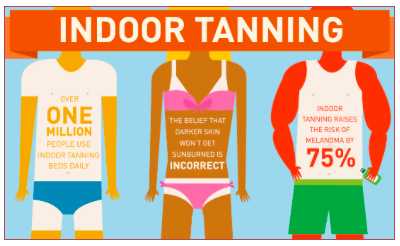The A, B, C, D & E’s Of Skin Cancer
What To Look For
What’s that spot I see? You might want to purchase a magnifying glass to compare the marks on your skin to the marks on this page.
(Note: these pictures are larger than real life).
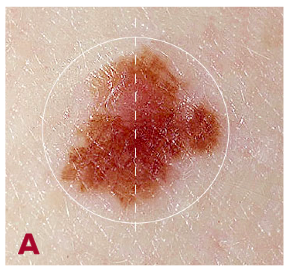
Asymmetry
One half of a mole does not match the other half. Normal moles are symmetrical (even). Draw an imaginary line through the middle of your mole or freckle and compare the two halves. If they do not look the same on both sides, have it checked by a dermatologist.
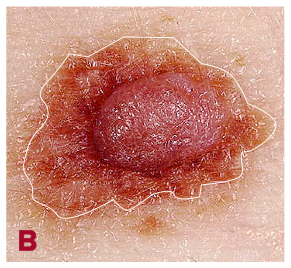
Border Irregularity
If the border or edges of the mole are ragged, blurred, or irregular, have it checked.
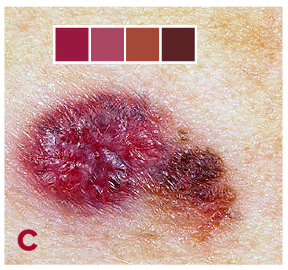
Color Variation
Shades of tan and brown, black and sometimes even white, red and blue may appear from one area to the other. Normal moles are usually a single shade of color. A mole of many shades or one that has lightened or darkened should be checked.
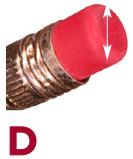
Diameter
A mole is suspicious if the diameter is larger than 1/4″. The size of the eraser tip of a pencil.
Evolving
A mole that is shrinking, growing larger, newly elevated, changing color, or begins to itch or bleed should be checked out.
Sign-up For Free NewsMinder | Send A Free e-Card
What To Do If You Find Something? | How To Find A Health Professional
Doctor Visit Questionnaire | Fill out Your Family History Tree
Photographs from various resources that didn’t have citations
Learn More About What Skin Cancer Looks Like







